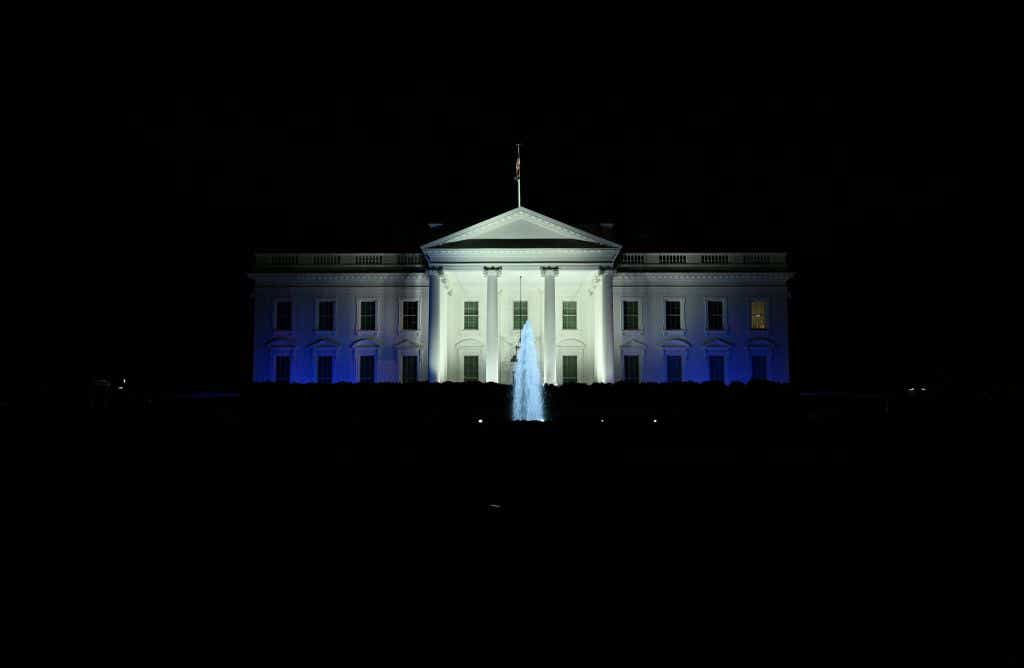An unprecedented attack by the militant group Hamas against Israel is sparking widespread condemnation, including from President Biden himself.
During a speech at the White House on Tuesday, the president denounced it it as an act of terrorism and vowed that the U.S. would fully support Israelis. “There are moments in this life, and I mean this literally, when pure unadulterated evil is unleashed on this world,” he said. “The people of Israel lived through one such moment this weekend.”
Biden also confirmed that at least 14 Americans have died in the conflict, while others are among those being held hostage by Hamas.
These remarks come amid the war that has erupted between Hamas and Israel since Saturday’s attacks. According to reports, more than 1,000 people have died in Israel, and 830 people have been killed in the ensuing strikes in Gaza.
In the days since the deadly assault, other leaders have spoken out as well. Here’s a breakdown of what the U.S. and other countries are doing to address the situation.
What did President Biden say about the Israel-Hamas war?
Biden confirmed on Tuesday that American citizens are among those who have been taken hostage by Hamas fighters. While he didn’t cite an exact number, White House national security adviser Jake Sullivan said 20 or more are considered “missing.”
“I’ve directed my team to share intelligence and deploy additional experts from across the United States government to consult with and advise Israeli counterparts on hostage recovery efforts,” he said. “Because as president, I have no higher priority than the safety of Americans being held hostage around the world.”
The president added that he has also called on Congress to take action to “fund the national security requirements of our critical partners.” According to The Hill, Biden is expected to tie aid for Israel to additional funding for Ukraine to support its war against Russia, which has faced pushback from several House Republicans.
But what complicates matters is the House doesn’t even have a Speaker after it ousted Republican Kevin McCarthy from the role just last week. The Republican-led chamber is now racing to find a new leader, with an internal election expected to be held on Wednesday.
How are other world leaders responding?
French President Emmanuel Macron, British Prime Minister Rishi Sunak, Italian Prime Minister Giorgia Meloni, and German Chancellor Olaf Scholz all signed a joint statement with Biden denouncing the Hamas attacks.
“We make clear that the terrorist actions of Hamas have no justification, no legitimacy, and must be universally condemned,” they wrote.
Other leaders, including Canadian Prime Minister Justin Trudeau, have also spoken out. “These acts of violence are completely unacceptable,” Trudeau said on X (formerly known as Twitter). And though he’s in the midst of his own war, Ukraine President Volodymyr Zelenskyy also vocalized his support: “In the face of such a terrorist strike, everyone who values life must stand in solidarity.”
But not everyone shares this sentiment. Iran’s official Islamic Republic News Agency quoted President Ebrahim Raisi congratulating Hamas for its “victorious operation,” according to The Washington Post. (It’s worth noting that the Biden administration has accused the country of being “complicit” in the attacks, though U.S. officials have acknowledged that this has yet to be confirmed.)
Meanwhile, the Qatari Foreign Ministry has even gone so far as to blame Israelis for the escalating violence. “Israel alone bears the responsibility for the current escalation due to its ongoing violations of the rights of the Palestinian people, the latest of which being the repeated raids on al-Aqsa Mosque under the protection of the Israeli police.”
Similarly, Saudi Arabia’s foreign ministry noted that it had repeatedly warned that Israel’s “occupation, the deprivation of the Palestinian people of their legitimate rights, and the repetition of systematic provocations” led to this contentious conflict.
Some, like the Chinese Foreign Ministry and Turkish President Recep Tayyip Erdogan, are taking a slightly different approach and calling on both sides to end the bloodshed. “The international community needs to act with greater urgency, step up input into the Palestine question, facilitate the early resumption of peace talks between Palestine and Israel, and find a way to bring about enduring peace,” a spokesperson for the Chinese Foreign Ministry said in a statement.









